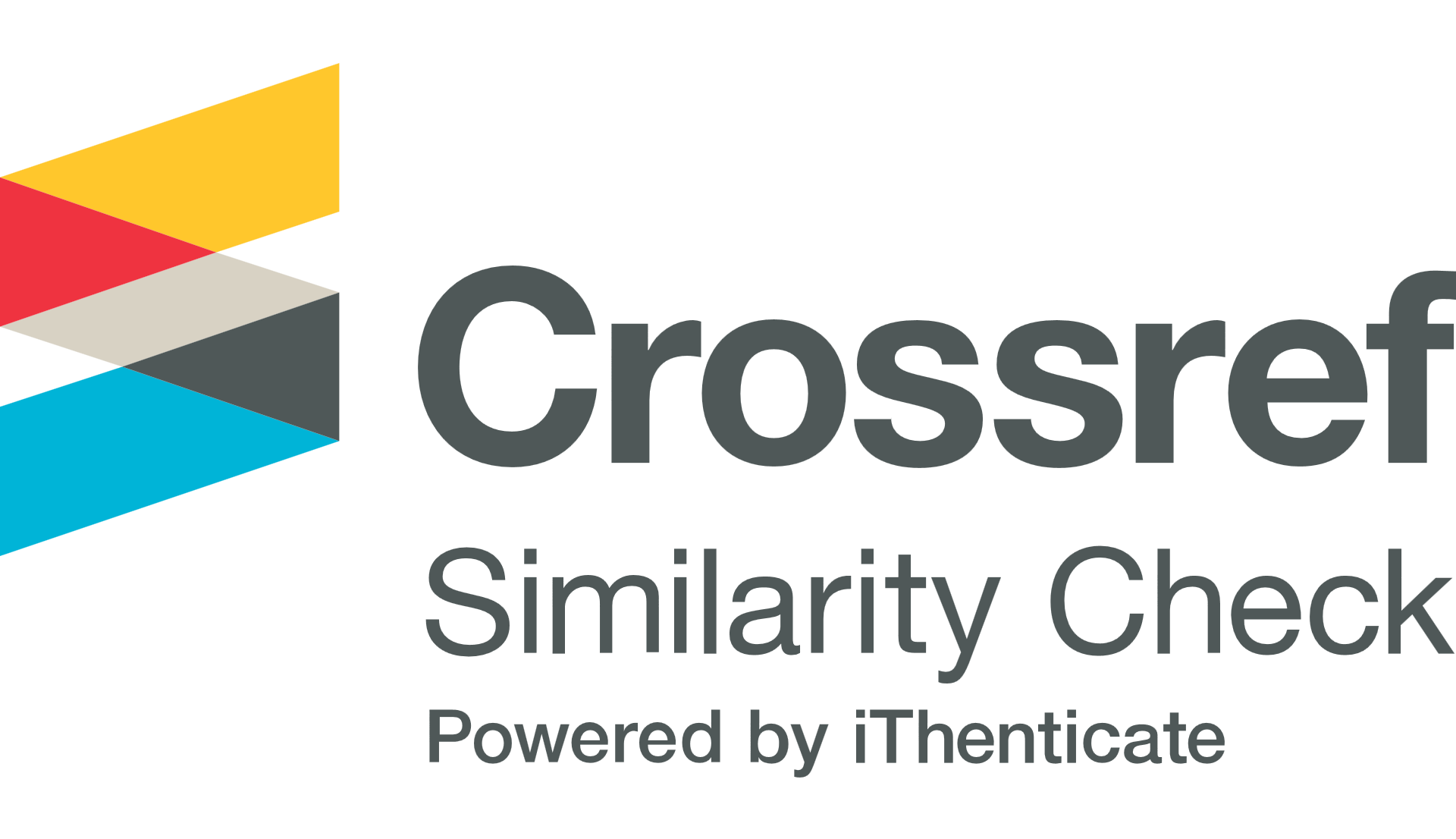Variasi Evaluasi Faktor Adopsi Knowledge Management System (Tinjauan Pustaka Sistematis)
DOI:
https://doi.org/10.37823/insight.v4i2.230Keywords:
KMS, TAM, Faktor Adopsi, Tinjauan Pustaka SistematisAbstract
Knowledge Management System atau Sistem Manajemen Pengetahuan merupakan sebuah faktor penting sebagai faktor kunci dalam keberhasilan dan pertumbuhan suatu organisasi. Organisasi saat ini, diwajibkan untuk terus belajar mengelola intagible asset berupa "knowledge" atau pengetahuan untuk bersaing dalam ekonomi global. Analisis Faktor dapat menyederhanakan Knowledge Management System, dimana analisis evaluasi dari Knowledge Management System dapat digunakan sebagai alat komprehensif bagi organisasi untuk sarana evaluasi bagi manajemen. Penelitian ini meneliti dari jurnal tingkat internasional melalui beberapa sumber terkait dengan kata kunci yang sama dan faktor-faktor yang mempengaruhi penilaian faktor eksternal berdasarkan metode TAM (Technology Acceptance Model). Model Penerimaan Teknologi mengusulkan bahwa faktor eksternal seperti faktor organisasi akan mempengaruhi penerimaan Knowledge Management System atau Sistem Manajemen Pengetahuan dengan mempengaruhi kegunaan yang dirasakan dan kemudahan penggunaan. Faktor eksternal dapat mencakup fitur sistem, relevansi pekerjaan, pengalaman penggunaan, dan konsultasi dukungan dokumen. Faktor eksternal menyediakan "jembatan" antara keyakinan internal, sikap dan niat yang diwakili dalam TAM (Technology Acceptance Model).
References
S. Al Hakim and D. I. Sensuse, “Knowledge Mapping System Implementation in Knowledge Management: A Systematic Literature Review,” Proc. 2018 Int. Conf. Inf. Manag. Technol. ICIMTech 2018, no. September, pp. 131–136, 2018, doi: 10.1109/ICIMTech.2018.8528190.
J. J. Siregar, R. A. A. Wardaya Puspokusumo, and A. Rahayu, “Analysis of Affecting Factors Technology Acceptance Model in the Application of Knowledge Management for Small Medium Enterprises in Industry Creative,” Procedia Comput. Sci., vol. 116, pp. 500–508, 2017, doi: 10.1016/j.procs.2017.10.075.
Z. Hussein, “Leading to Intention: The Role of Attitude in Relation to Technology Acceptance Model in E-Learning,” Procedia Comput. Sci., vol. 105, no. December 2016, pp. 159–164, 2017, doi: 10.1016/j.procs.2017.01.196.
N. Ali, A. Tretiakov, D. Whiddett, and I. Hunter, “Knowledge management systems success in healthcare: Leadership matters,” Int. J. Med. Inform., vol. 97, pp. 331–340, 2017, doi: 10.1016/j.ijmedinf.2016.11.004.
H. Rafique, A. O. Almagrabi, A. Shamim, F. Anwar, and A. K. Bashir, “Investigating the Acceptance of Mobile Library Applications with an Extended Technology Acceptance Model (TAM),” Comput. Educ., vol. 145, p. 103732, 2020, doi: 10.1016/j.compedu.2019.103732.
J. C. Sánchez-Prieto, S. Olmos-Migueláñez, and F. J. García-Peñalvo, “MLearning and pre-service teachers: An assessment of the behavioral intention using an expanded TAM model,” Comput. Human Behav., vol. 72, pp. 644–654, 2017, doi: 10.1016/j.chb.2016.09.061.
A. Z. Susilo, M. Iksan Prabowo, A. Taman, A. Pustikaningsih, and A. Samlawi, “A comparative study of factors affecting user acceptance of go-pay and OVo as a feature of Fintech application,” Procedia Comput. Sci., vol. 161, pp. 876–884, 2019, doi: 10.1016/j.procs.2019.11.195.
H. Y. Yoon, “User Acceptance of Mobile Library Applications in Academic Libraries: An Application of the Technology Acceptance Model,” J. Acad. Librariansh., vol. 42, no. 6, pp. 687–693, 2016, doi: 10.1016/j.acalib.2016.08.003.
A. Mazaherinezhad, A. M. Ahmed, M. Y. Ghafour, O. H. Ahmed, S. Ali, and M. Hosseinzadeh, “A new model for investigating the role of knowledge management system on the mental health of employees,” Kybernetes, vol. 50, no. 12, pp. 3269–3285, 2021, doi: 10.1108/K-02-2020-0103.
A. Museli and N. Jafari Navimipour, “A model for examining the factors impacting the near field communication technology adoption in the organizations,” Kybernetes, vol. 47, no. 7, pp. 1378–1400, 2018, doi: 10.1108/K-07-2017-0246.
S. Singh and P. Srivastava, “Social media for outbound leisure travel: a framework based on technology acceptance model (TAM),” J. Tour. Futur., vol. 5, no. 1, pp. 43–61, 2019, doi: 10.1108/JTF-10-2018-0058.
S. Weerasinghe and M. C. B. Hindagolla, “Technology acceptance model and social network sites (SNS): a selected review of literature,” Glob. Knowledge, Mem. Commun., vol. 67, no. 3, pp. 142–153, 2018, doi: 10.1108/GKMC-09-2017-0079.
I. M. Shofi, S. R. N. Puspitasari, and A. N. Fajar, “Analysis Model of User Acceptance Knowledge Management System (KMS) at PT.XYZ,” 2018 6th Int. Conf. Cyber IT Serv. Manag. CITSM 2018, no. Citsm, 2019, doi: 10.1109/CITSM.2018.8674355.
N. Legowo and D. Firmansyah, “Evaluation of the Knowledge Management System in Bank CN Using Method of Technology Acceptance Model,” Proc. 2019 Int. Conf. Inf. Manag. Technol. ICIMTech 2019, no. August, pp. 569–574, 2019, doi: 10.1109/ICIMTech.2019.8843834.
F. Setianto and Suharjito, “Analysis the acceptance of use for document management system using technology acceptance model,” Proc. 3rd Int. Conf. Informatics Comput. ICIC 2018, pp. 1–5, 2018, doi: 10.1109/IAC.2018.8780462.
P. Sombat, W. Chaiyasoonthorn, and S. Chaveesuk, “The acceptance model of hospital information systems in Thailand: A conceptual framework extending TAM,” 2018 5th Int. Conf. Ind. Eng. Appl. ICIEA 2018, pp. 89–94, 2018, doi: 10.1109/IEA.2018.8387076.
J. S. Suroso, A. Retnowardhani, and A. Fernando, “Evaluation of knowledge management system using technology acceptance model,” Int. Conf. Electr. Eng. Comput. Sci. Informatics, vol. 4, no. September, pp. 472–476, 2017, doi: 10.11591/eecsi.4.1048.
N. Karna, I. Supriana, and N. Maulidevi, “Implementation of e-leaming based on knowledge management system for Indonesian academic institution,” Proc. - 2016 1st Int. Conf. Inf. Technol. Inf. Syst. Electr. Eng. ICITISEE 2016, pp. 43–48, 2016, doi: 10.1109/ICITISEE.2016.7803045.
H. Rohayani, S. Assegaff, and Kurniabudi, “Development of conceptual model in understanding the role of organizational factor in KMS acceptance,” Proc. - 2016 3rd Int. Conf. Inf. Technol. Comput. Electr. Eng. ICITACEE 2016, pp. 308–312, 2017, doi: 10.1109/ICITACEE.2016.7892461.
N. K. S. Putri, A. Rahman, C. H. G. Qing, and B. W. Djojo, “Knowledge management systems in construction consulting company,” Proc. 2020 Int. Conf. Inf. Manag. Technol. ICIMTech 2020, no. August, pp. 300–305, 2020, doi: 10.1109/ICIMTech50083.2020.9211262.
A. Rahmawati, D. Pribadi, Y. Farlina, L. S. Ramdhani, R. Yulistria, and E. Marsusanti, “Technology Acceptance Model (TAM) for analyzing E-Report Information System,” 2019 7th Int. Conf. Cyber IT Serv. Manag. CITSM 2019, 2019, doi: 10.1109/CITSM47753.2019.8965398.
H. A. Eka Widjaja, Meyliana, A. N. Hidayanto, K. Phusavat, and B. Sablan, “The Evaluation of Education ERP System Implementation in University Using CSF and TAM,” Proc. 2018 Int. Conf. Inf. Manag. Technol. ICIMTech 2018, no. September, pp. 511–516, 2018, doi: 10.1109/ICIMTech.2018.8528133.
Natalia, S. Bianca, and I. A. Pradipta, “Analysis User Acceptance of Wonderful Indonesia Application Using Technology Acceptance Model (case study: Indonesian Ministry of Tourism),” Proc. 2019 Int. Conf. Inf. Manag. Technol. ICIMTech 2019, vol. 1, no. August, pp. 234–238, 2019, doi: 10.1109/ICIMTech.2019.8843785.
A. Susanto, Z. Tamimi, M. C. Utami, A. Fitriyani, I. Sujoko, and Asmawi, “Examining the Implications of Unified Theory of Acceptance and Use of Technology for National Library Navigation Systems,” 2020 8th Int. Conf. Cyber IT Serv. Manag. CITSM 2020, pp. 23–28, 2020, doi: 10.1109/CITSM50537.2020.9268885.
M. Al-Emran, V. Mezhuyev, and A. Kamaludin, “Towards a conceptual model for examining the impact of knowledge management factors on mobile learning acceptance,” Technol. Soc., vol. 61, no. September 2019, p. 101247, 2020, doi: 10.1016/j.techsoc.2020.101247.
R. Z. Kuo and G. G. Lee, “KMS adoption: The effects of information quality,” Manag. Decis., vol. 47, no. 10, pp. 1633–1651, 2009, doi: 10.1108/00251740911004727.
Inayatulloh, “Technology acceptance model (TAM) for theimplementation of knowledge acquired model for SME,” Proc. 2020 Int. Conf. Inf. Manag. Technol. ICIMTech 2020, no. August, pp. 767–770, 2020, doi: 10.1109/ICIMTech50083.2020.9211279.
A. D. Herlambang, “System Usage at Brawijaya University Based On,” 2018 Int. Conf. Sustain. Inf. Eng. Technol., pp. 272–277, 2018.
J. S. Suroso, Sasmoko, and R. Fadhillah, “Evaluation of Knowledge Management System Application with Technology Acceptance Model Method in Education Division,” 2018 Int. Conf. Orange Technol. ICOT 2018, 2018, doi: 10.1109/ICOT.2018.8705881.
C. Gupta, V. Gupta, and A. Stachowiak, “Adoption of ICT-Based Teaching in Engineering: An Extended Technology Acceptance Model Perspective,” IEEE Access, vol. 9, pp. 58652–58666, 2021, doi: 10.1109/ACCESS.2021.3072580.
E. Didik Madyatmadja, A. V. Dian Sano, W. N. Suliyanti, and R. A. Chondro, “Advanced usage of ticketing report dashboard in airlines,” Proc. 2017 Int. Conf. Inf. Manag. Technol. ICIMTech 2017, vol. 2018-January, no. November, pp. 260–265, 2018, doi: 10.1109/ICIMTech.2017.8273548.
Davis, F.D.1989.” Perceived Usefulness, Perceived Ease of Use, and User Acceptance of Information Technology”. MIS Quarterly.Vol. 13 No. 5: pp319-339.
Aaker, D.A., & Myers, J.G. 1997. Advertising Management, 3rd edition. Englewood Cliffs, New Jersey: Prentice-Hall Inc
Xu, J., and Quaddus, M. (Artist). (2007). Exploring the Factors Influencing End Users' Acceptance of Knowledge Management Systems: Development of a Research Model of Adoption and Continued Use.
S. A. Hakim, "Knowledge Mapping System Implementation in Knowledge Management," in ICIMTech, IEEE, 2018.
K. Iskandar, "Knowledge Management System usage evaluation with logging and quantitative method," in ICIMTech, IEEE, 2016.
Downloads
Published
How to Cite
Issue
Section
License
Copyright (c) 2022 Journal of Information System,Graphics, Hospitality and Technology

This work is licensed under a Creative Commons Attribution-ShareAlike 4.0 International License.
















.png)
.png)






